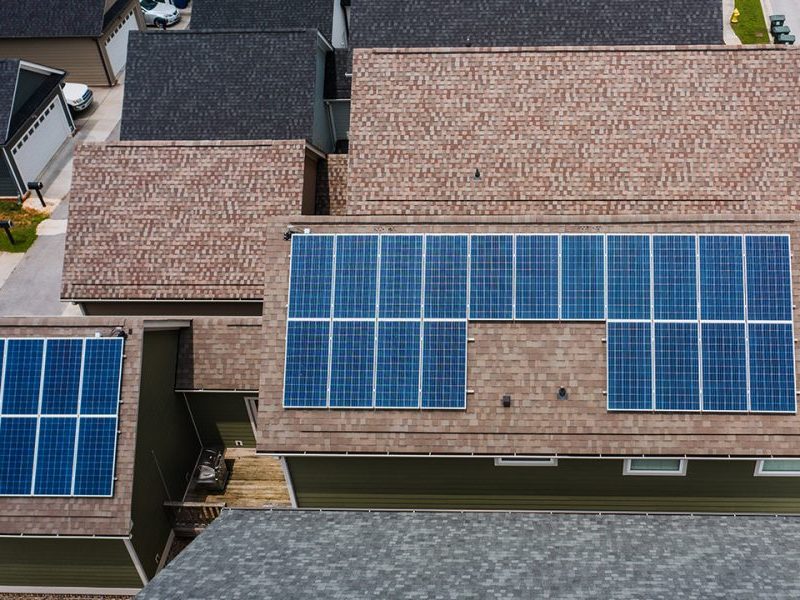
Navigating the Solar Landscape: Understanding Sales Tax on Solar Panels in New Jersey
As the push for sustainable energy gains momentum, more homeowners in New Jersey are turning to solar panel systems to power their homes. While the environmental benefits are clear, it’s essential to understand the financial implications, including the sales tax associated with installing solar panels in the Garden State. In this guide, we’ll explore the sales tax on solar panels in New Jersey and shed light on the solar tax credit opportunities available to residents.
Understanding Sales Tax on Solar Panels in New Jersey
New Jersey imposes a 6.625% sales tax on tangible personal property, which includes the purchase and installation of solar panel systems in NJ. However, there’s good news for environmentally conscious homeowners—New Jersey offers a Sales Tax Exemption for solar energy systems. This exemption applies to both the purchase and installation costs of qualifying solar panel systems, helping to make clean energy more financially accessible.
To qualify for the sales tax exemption, the solar panel system must meet certain criteria outlined by the New Jersey Division of Taxation. Generally, eligible systems must be installed on residential properties and meet specific technical requirements. Homeowners are encouraged to consult with a qualified solar professional to ensure their system complies with the necessary standards and qualifies for the exemption.
Solar Tax Credit in New Jersey
In addition to the sales tax exemption, New Jersey residents can take advantage of the solar tax credit in New Jersey, which provides a financial incentive for investing in solar energy. The federal solar Investment Tax Credit (ITC) allows eligible homeowners to deduct a percentage of their solar panel system’s cost from their federal taxes. As of 2023, the ITC provides a 26% credit on the total cost of a solar installation.
Furthermore, New Jersey has its own state-level solar tax credit program, enhancing the financial benefits for residents embracing solar energy. The New Jersey Solar Energy Credit (NJSEC) provides homeowners with a credit based on the electricity generated by their solar panel system. This credit can be applied against the homeowner’s state income tax liability.
It’s important to note that the availability and terms of solar incentives may change, so homeowners should stay informed about the latest updates from state and federal authorities.
How to Claim the Solar Tax Credit
To benefit from the solar tax credit, homeowners must follow specific steps when filing their taxes. First and foremost, it’s crucial to ensure that the solar panel system qualifies for the credit. Working with a reputable solar installation company can streamline this process, as they are well-versed in the eligibility criteria.
Upon completion of the solar installation, homeowners should retain all relevant documentation, including invoices, receipts, and certification of the solar panel system’s eligibility for the tax credit. When filing taxes, homeowners can use IRS Form 5695 to claim the residential energy-efficient property credit, which includes the solar ITC.
The Future of Solar Energy in New Jersey
As technology advances and the demand for renewable energy grows, New Jersey continues to position itself as a leader in the solar industry. The combination of sales tax exemptions and robust solar tax credit programs makes transitioning to solar energy an increasingly attractive option for homeowners.
Beyond the financial incentives, adopting solar energy contributes to the state’s commitment to reducing greenhouse gas emissions and building a more sustainable future. Homeowners embracing solar power not only enjoy immediate cost savings but also contribute to the collective effort to combat climate change.
Conclusion
In conclusion, understanding the sales tax on solar panels in New Jersey is crucial for homeowners considering a transition to clean energy. The state’s commitment to sustainability is evident in the various financial incentives, including the sales tax exemption and the solar tax credit programs.
By taking advantage of these incentives, homeowners not only contribute to a greener future but also experience tangible economic benefits. As the solar industry continues to evolve, staying informed about the latest regulations and opportunities is key to maximizing the advantages of solar energy in the Garden State. Embracing solar power is not just an investment in one’s home; it’s an investment in a sustainable and eco-friendly future for New Jersey and beyond.




